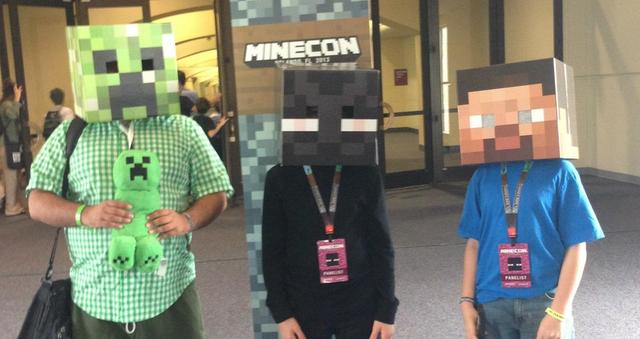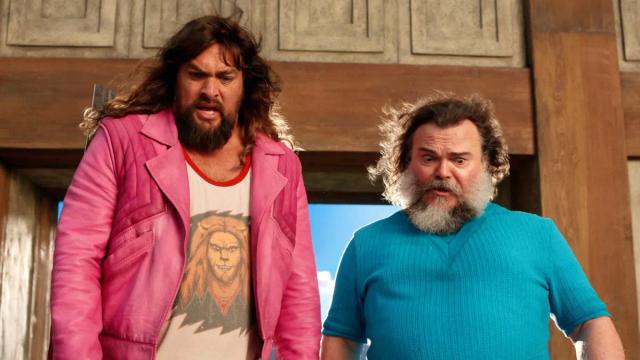If you click on a link and make a purchase we may receive a small commission. Read our editorial policy.
The final Judgment Day is upon us, with a vision of humanity's future via its recent past
The EC Comics classic knew what it wanted to say, even if others didn't necessarily like it

Of all the various alternate comic book Judgment Days I’ve revisited to coincide with the release of new issues of Marvel’s epic crossover event of the same name to date – whether they were 2000 AD zombie stories, Justice League team-ups, unexpected collaborations between two high profile creators, some early work from Geoff Johns, or simply an off-kilter adaptation of a stone-cold cinematic classic – none have been as far removed from Marvel’s contemporary event as the final story in our series… and yet, there’s something about the classic EC short 'Judgment Day' that just might make it the one hewing closest to the spirit of what Kieron Gillen, Valerio Schiti, and others were intending all along.
Originally published in 1953’s Weird Fantasy #13 – and reprinted three years later in circumstances that we’ll get to later – 'Judgment Day!' is the work of two all-time classic creators (writer Al Feldstein and artist Joe Orlando) putting their talents towards a well-meaning sci-fi metaphor that’s roughly as subtle as a brick to the head.
The plot is as simple as you’d expect from a strip that only runs seven pages: an astronaut called Tarlton, from “Earth Colonization.” lands on a planet of robots called Cyberinia. The unseen astronaut – he’s hidden inside his space suit, with nothing of the original man visible, which will prove to be important later – is there, he explains, to check out whether or not the Cyberinians are ready to join “Earth’s great Galactic Republic,” but what he finds isn’t promising: the robots are split into two sects, the Orange robots and the Blue robots, and each sect resides in different parts of the city.
Again, this isn’t particularly subtle; we see Tarlton and one of the Orange robots waiting for a bus – no, really, it’s specifically stated that they’re waiting “under the bus station shed” by a caption – as the human asks, “You… differentiate between blue robots and orange robots?” “Of course!” says the Orange robot. “Otherwise there’d be trouble! Have to keep them in their place, you know…” Do you get it? Do you? In case you didn’t, Tarlton and the Orange robot visit a factory manufacturing Blue robots, where Tarlton takes the opportunity to point out, “It is only here, my friend, with the blue sheathings, that a difference can be detected. But the sheathings are only outside coverings. The inside structures are no different than yours…”

As the tour of Cyberinia continues, it’s revealed that the Blue robots don’t have the same access to education or job opportunities as the Orange robots, as decided by the Orange “Educator.” Tarlton again spells it out for the reader, declaring, “The ‘Educator’ is the parents and the relatives and the environment and the school all rolled into one, eh?” He goes on to say that Cyberinia is “not yet ready to join the great Galactic Republic,” but offers hope for the future. “For a while, on Earth, it looked like there was no hope!” he announces. “But when mankind on Earth learned to live together, real progress first began. The universe was suddenly ours.”
He gets back into his rocket, and leaves the planet, pleased with himself, only to take off his helmet for the first time in the entire strip, and… would you believe that Tarlton was Black?!? In case Orlando’s beautiful artwork isn’t enough, the final caption presses the point home: “And inside the ship, the man removed his space helmet and shook his head, and the instrument lights made the beads of perspiration on his dark skin twinkle like distant stars…”

Look beyond the not-so-surprising “twist ending” of the story, although that final caption is quite something, and there’s much to enjoy in “Judgment Day!” Even overlooking Orlando’s delightfully pulpy art, which looks like a techno nightmare born from old Flash Gordon comics in the very best way possible, let’s take a moment to appreciate the humanist, anti-racist message that’s (astonishingly, unmistakably) clear in the story, especially coming in 1953, a period where the United States was hardly the most receptive to such things, to say the least. The idea that a planet of robots made by humanity – something purposefully laid out in the story’s first page – replicates some of its worst impulses is one filled with potential, even if it’s necessarily rushed and obvious here, due to the page count.
Curiously enough, it’s this humanism that makes it feel closest to Marvel’s current A.X.E. Judgment Day. For all that the Avengers/X-Men/Eternals crossover has distracted readers with the superheroic exploits of… well, the Avengers, the X-Men, and the Eternals, as well as a whole slew of other heroes, at its core, it’s also a story about being… well, good. Admittedly, a lesson taught via the threat of the genocide of the entire human race by cosmic space gods, but again: it’s a superhero crossover comic.
As blunt as the EC “Judgment Day!” story is – and it is wonderfully, shockingly, blunt in its metaphorical explanation for the stupidity behind racism – there’s a clarity of purpose there that, in a roundabout way, I find myself wishing that A.X.E. Judgment Day had; as central as the plea for morality in that story may be, it still feels as if it’s there through stealth, hiding behind the sight of Captain America grimacing against uneven odds and hoping to be recognized by the reader. There’s a version of this story that has 20% less superheroes, with that space being taken up by the regular people responding to events and realizing who they really are, and the distance between that and who they thought they were; I want to read that story.

Then again, there might be something to be said for the stealth route. I mentioned that “Judgment Day!” was reprinted earlier, and that happened under unusual, and unfortunate, circumstances. Between the first and second printings of the story – it re-appeared in 1956’s Incredible Science Fiction #33 – the Comics Code Authority was instituted, and therein lies the problem. The Authority, which was created in 1954 by a collective of comics publishers looking to avoid government oversight of their industry, had the official aim of protecting comic readers from any material deemed unsuitable for young minds… but this story as it was initially published ran afoul of that mission, as unlikely as it seems.
“Judgment Day!”’s reprint in Incredible Science Fiction was, itself, an attempt to fill the space left from a story pulled entirely after the Authority objected; however, the Comics Code Authority reportedly objected to the fact that Tarlton was revealed to be Black. Feldstein, who wrote the story, is quoted in the 1996 book Tales from the Crypt: The Official Archives as saying, “I went in there with this story and [CCA administrator Judge Charles] Murphy says, ‘It can't be a Black man’. But ... but that's the whole point of the story!'”
EC publisher William Gaines threatened to go to the press with the story, prompting a quasi-retreat from Murphy, saying that Tarlton could remain a Black man… as long as art corrections were done removing the sweat on his face. Feldstein, interviewed for 2000’s Tales of Terror! The EC Companion, described what happened next like this: “Bill [Gaines] just called him up and raised the roof, and finally they said, 'Well, you gotta take the perspiration off'. I had the stars glistening in the perspiration on his Black skin. Bill said, 'Fuck you', and he hung up.”
The reprint ran as originally intended, but it was a pyrrhic victory; Incredible Science-Fiction #33 was the last EC comic book title published, outside of MAD Magazine. Gaines instead shifted to illustrated prose magazines, which he called “Picto-Fiction,” before shutting up shop entirely months later.
“Judgment Day!,” then, becomes the final EC Comics story to be published. Maybe there’s something to keeping your humanism hidden, after all. There’s the fun to be had in pretending the Marvel Universe is about to end, and then there’s the reality of an entire line of comics shutting down; at least on this latest go-around, the worst Judgment Day! ends up doing is close out this series of essays with a plea that we’re all a little nicer to each other. You never know when a cosmic space god is going to come down and take notice, in the end.
If you want to read about other Judgment Days that aren’t Marvel’s 2022 event, there have been zombies, dead Booster Golds, universal reinventions, the origin of the Spectre (again), and, of course, Arnold Schwarzenegger. Go catch up.
Follow Popverse for upcoming event coverage and news
Find out how we conduct our review by reading our review policy
Let Popverse be your tour guide through the wilderness of pop culture
Sign in and let us help you find your new favorite thing.
















Comments
Want to join the discussion? Please activate your account first.
Visit Reedpop ID if you need to resend the confirmation email.